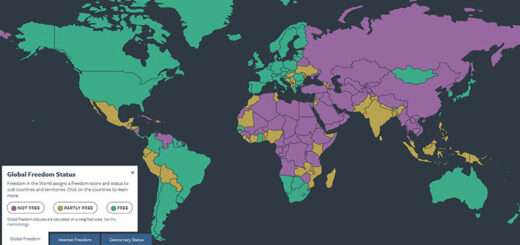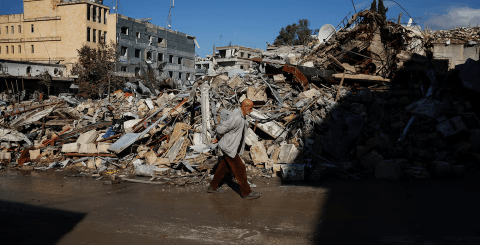Armenia broadens procurement horizons in drive to modernize armed forces

Driven in no small part by a deterioration in relations with Moscow – which offered little support to Yerevan in the 2020 conflict and subsequent skirmishes with Azerbaijan, and whose weapons deliveries have slowed down despite prepayments – Armenia has instead turned to France, India and possibly Greece, for a range of materiel.
Armenia’s recent procurement efforts are introducing modern air defence and artillery capabilities (see Table 1) to its armed forces, which have traditionally fielded Soviet- or Russian-built weaponry. The new systems include a mix of Western equipment, such as KNDS France’s CAESAR self-propelled artillery and Indian systems like Larsen & Toubro’s Pinaka multiple rocket launcher.

Drivers of sales
France’s willingness to sell defence equipment to Armenia may be driven by its rivalry with Turkiye across many theatres for over a decade. In the Caucasus, Turkiye has supported Azerbaijan since its independence from the Soviet Union in 1991. In 2024 the then-French interior minister said that Azerbaijan was supporting separatist elements in France’s overseas territory of New Caledonia. In addition to weapons sales, France and Armenia signed contracts in 2023 to modernise the country’s military. The two continued to step up their defence cooperation in 2024 and 2025 through military assistance programmes that include education, training and advisory.
India’s arms sales to Armenia provide an opportunity to expand its defence exports and showcase indigenous systems to other potential buyers. Recent Armenian purchases from India have reached a value of USD600 million, according to Indian media reports. Armenia’s first appointment of a defence attaché to India in 2023 served as a driver and facilitator of growing defence cooperation. In addition, initial bilateral defence consultations occurred in 2024, a defence working group was created to implement a cooperation plan for 2024 and 2025, and India appointed its first defence attaché to Armenia in 2025.
Beyond the commercial aspect, geopolitics may also be a factor in India’s interest in selling defence equipment to Armenia. Armenia has supported India’s position on Kashmir, with Azerbaijan and Turkiye having supported Pakistan regarding Kashmir.
Greece, with its potential transfers to Yerevan, is similarly trying to counter Turkish influence and has shared historical and religious ties. Greece is one of Armenia’s primary military partners, providing technical assistance to Yerevan and training Armenian officers in Greek military academies. In 2023, the two signed a military-technical cooperation agreement to deepen their defence partnership, with a focus on information sharing, joint research and development and training.
There is some uncertainty, however, over the air-defence systems Greece reportedly hopes to transfer to Armenia, as these are Russian-built. A spokesperson for the Russian Ministry of Foreign Affairs said in December 2024 that Athens would need Moscow’s consent to supply these systems, and at that time had not received such a request.
Emerging coalitions and Azerbaijani moves
Several coalitions appear to be emerging in support of Armenia. In 2021, Armenia, Cyprus and Greece signed the Tripartite Defence Cooperation Program, which is focused on conducting joint exercises, sharing expertise and promoting broader military cooperation. In December 2024, Armenia held defence consultations with Greece and Cyprus, agreeing on defence cooperation programmes for 2025. Greece has also indicated the possibility of a new quadrilateral emerging, with the country’s minister of national defence stating in March 2024 that there ‘may also be other trilateral or quadrilateral relations with France and India […] and very influential common allies of Armenia and Greece’. A further coalition is between Armenia, India and Iran, which began trilateral consultations in 2023. However, this grouping focuses primarily on connectivity initiatives between the three countries rather than defence cooperation. his grouping focuses primarily on connectivity initiatives between the three countries rather than defence cooperation.
Azerbaijan is not without support, having signed a trilateral cooperation agreement in 2017 with Pakistan and Turkiye. In the wake of the 2020 Nagorno-Karabakh war, Pakistan and Turkiye showed solidarity with Azerbaijan by signing the trilateral Islamabad Declaration and subsequently boosting cooperation. More recently, during a summit in July 2024, the countries discussed the importance of regular joint military exercises to strengthen their defence capabilities, citing the Three Brothers drills as a model for future cooperation. They also explored the potential for joint defence manufacturing and Azerbaijan’s defence industry has signed various agreements with companies in Pakistan and Turkiye for joint production and research and development.
Despite international support and new equipment, Armenia is still in a position of relative military inferiority compared to Azerbaijan, whose defence budget is a little under three times as large as that of Armenia – USD3.7 billion versus USD1.3bn in 2024. Baku has also signed defence-cooperation agreements with Kazakhstan, Serbia, Slovakia and Uzbekistan, and purchased a range of advanced systems, such as IAI’s Barak LRAD self-propelled surface-to-air missile system and PAC’s JF-17 Thunder multi-role combat aircraft.





